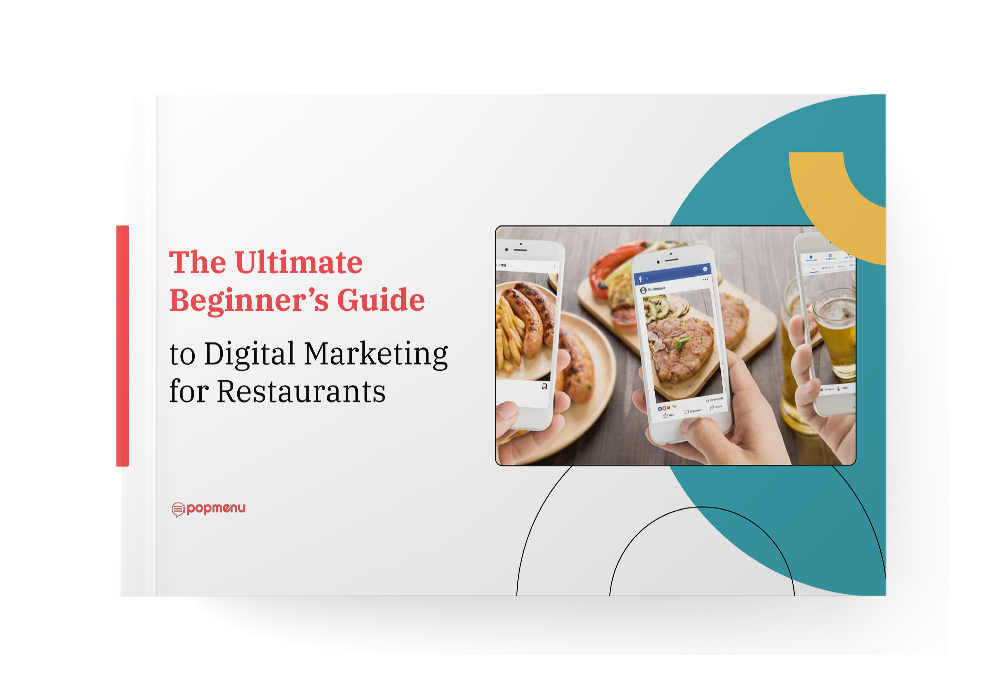Go ahead and look at your phone – how many apps do you have? Likely too many to count. In fact, the average smartphone user has more than 80 apps. But here’s the thing – they only use about 9 per day and 30 per month on average.
If you’re an independent restaurant or small chain restaurant owner, you may believe that in today’s smartphone-obsessed world it’s crucial to have a mobile app for your restaurant. But before you invest in developing and maintaining one, consider if it’s really the best strategy for your business.
Sure, you may be inundated on the daily with reasons why mobile apps are a must for restaurants, but we’re here to share the rationale for why it’s not necessary for your establishment to have one—and what is actually more vital to reaching customers and growing your business.
Let’s start with why mobile apps for restaurants aren’t all that
- App fatigue is real: While it may seem like apps are only gaining in popularity, the research proves otherwise: app downloads in the U.S. declined by 3.4% in 2024. What’s more, a Forrester Research study found that 80% of consumers’ app time is spent on just five apps. People are hitting their app limits, so unless yours is incredibly engaging or crucial to their daily life, guests will likely skip the download.
- You won’t get many downloads: It’s clear that consumers’ phones are already cluttered with apps – most of which aren’t used regularly or ever. So while consumers may be happy to download apps from major restaurant chains, most independent restaurants aren’t going to be appealing enough to warrant the storage space. The people who would use your app are usually limited to your local area, which makes the potential user pool pretty small.
- The cost outweighs the benefits: If you were to run a cost-benefit analysis on whether or not to create an app, you’d see that the price per download would not be worth it. In fact a basic marketplace app costs an average of $10,000 - $30,000. This cost could go up to a whopping $150k for a more advanced app experience.
- The upkeep is overwhelming: Running an independent restaurant means you’re already wearing multiple hats. Adding the responsibility of managing a mobile app’s content and technical issues can be overwhelming – especially for those who may not have as much marketing or technology experience.
- There’s a lack of personalization: A mobile app doesn’t necessarily help you engage with customers in a targeted way. While mobile apps can send push notifications, they’re often not the most effective tool for personalized messages. There are other forms of communication that are better equipped to help you build relationships with your customers without overwhelming them with unnecessary features or updates.
"A vital question to ask is, 'Will this app bring me a new group of customers?'" shared John Horvatinovich, Owner of Bread & Olive Social. "In the early days of restaurant technology, platforms tapped into the 'oil field' of hospitality data, gaining immense value from customer information. Today, the tables are turning, and some platforms now deliver value back to restaurants by actively helping them attract new customers, a promising shift for the industry."
On to the superior alternative – the restaurant marketing platform
Much of the appeal of a mobile app is something that can be easily solved with the right marketing platform. From direct communication through marketing channels to first-party online ordering, a robust platform meets all of your marketing needs without the stress, complexity, and price tag of a mobile app. Let’s explore some of the main elements of a marketing platform that will engage your customers effectively.
- A mobile-optimized website: A mobile-optimized website offers all of the same benefits as a restaurant mobile app, and then some. It’s a one-stop shop for your guests to learn about your restaurant, interact with the menu, order online, and make reservations. It also gives you a direct line to communicate with guests, as well as full control over your restaurant’s online appearance and branding. The right marketing solution will enable you to easily make real-time menu adjustments and create interactive menus with pictures and reviews.
- Easy online ordering: When you use an end-to-end marketing solution, online ordering capabilities are integrated into your website, POS, and other marketing tools, making the experience seamless for customers (something they would expect from a mobile app). What’s more, dynamic online ordering allows you to learn what your guests like with every order and automatically invite them back with personalized messages…this type of personalization is something most restaurant mobile apps don’t – and can’t – offer.
- Engagement via multiple marketing channels: Why focus on one way to reach customers (mobile app) when you can engage with them in multiple ways (marketing platform)? Emails are a great medium for sharing customized messages with guests, such as upcoming events, special menu items, and limited-time offers. Social media marketing can help to bring in new business, keep your brand top-of-mind, and cultivate community engagement. Texts are also an impactful way to reach guests instantly with updates about their favorite dishes or to wish them a happy birthday.
- Smart discount strategies: Marketing platforms allow you to share offers and promotions easily with guests via multiple touchpoints. They enable you to re-engage with your existing guests by sending new menu specials and promotional offers that they can redeem on-premises or online. Your restaurant can keep costs low and engagement high by promoting offers via automated emails, texts, and social media that include links going directly to your online ordering page.
Getting the most bang for your marketing buck
For independent restaurants and local chains, a mobile app is often unnecessary and cost-prohibitive. Investing in a solid marketing platform provides a more effective way to attract and retain guests and boost sales. By focusing on digital marketing strategies that maximize visibility and engagement, your establishment can thrive – without the burden of an underused mobile app.
John Horvatinovich says, "Ultimately, technology should never be viewed as a 'set it and forget it' solution. It must be treated as a dynamic, evolving asset that grows alongside your business. Regular assessments ensure that your tech investments serve their purpose—not only improving processes but also empowering your team and enhancing your guests' experiences."
To learn more about how a restaurant marketing platform can help your business without breaking the bank, schedule a demo with one of our experts!


.jpeg)







